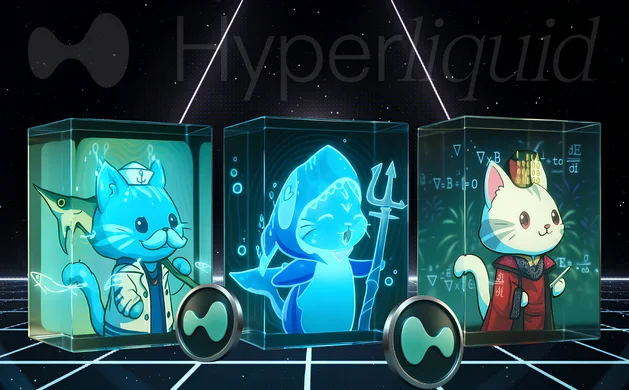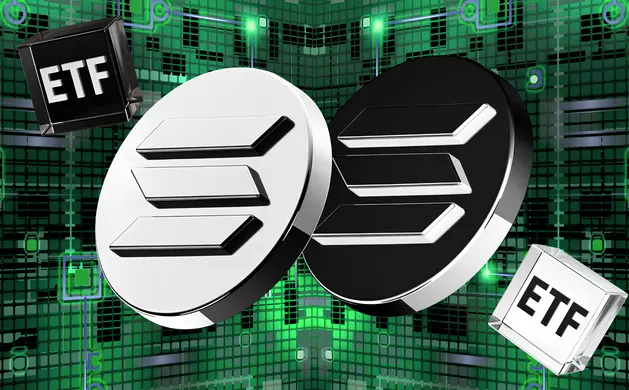Ethereum’s Pectra Upgrade Clears Final Gnosis Chain Test

GM. Ethereum’s long-awaited Pectra upgrade just cleared its final trial on Gnosis Chain, promising a smooth path toward mainnet activation this week.
Meanwhile, Vitalik calls for a simpler Ethereum, Senate Democrats pull support from a key stablecoin bill, and Arizona’s governor vetoes a Bitcoin reserve proposal.
Here’s what’s setting the tone for the week. 👇
Ethereum’s Pectra Upgrade Clears Final Gnosis Chain Test
Gnosis Chain has successfully deployed Ethereum’s Pectra upgrade ahead of its scheduled May 7 mainnet release. The milestone upgrade integrates 11 Ethereum Improvement Proposals and marks the biggest protocol overhaul since 2024’s Dencun.
The smooth rollout on Gnosis Chain follows prior testnet mishaps that delayed Ethereum’s timeline, including a weeks-long Holesky failure. “It worked, which provides confidence because GnosisChain is actually very, very similar,” said Safe co-founder Richard Meissner.
Pectra introduces important upgrades, including EIP-7702’s account abstraction, expanded validator caps, tokenized gas payments, and doubled blob space for Layer 2 throughput. These features aim to optimize Ethereum’s base layer for usability and performance while preserving decentralization.
Gnosis Chain, often used for real-world testing due to its similarity to Ethereum’s architecture, omitted only the new blob schedule in its deployment. With no service interruptions reported, developers say the live environment validation offers critical assurance that the Ethereum upgrade will go off clean.
Vitalik Wants Ethereum to be "as Simple as Bitcoin" in 5 Years
Ethereum co-founder Vitalik Buterin published a blog post on May 3 proposing protocol-wide simplification to make Ethereum more like Bitcoin in design. He criticized past complexity (blaming even his own decisions) for inflated development timelines, higher bug risks, and closed-off research culture. Changes include streamlining consensus to “3-slot finality” and transitioning execution to a ZK-friendly, RISC-V virtual machine.
Buterin also called for adopting shared standards across serialization and erasure coding while reducing the core protocol’s line count. To preserve backward compatibility, legacy EVM contracts would run in parallel through an interpreter. His post comes as Ethereum faces growing pressure from leaner competitors like Solana and Avalanche.
Senate Democrats Threaten Stablecoin Bill Progress
Nine U.S. Senate Democrats said they no longer support the GENIUS Act stablecoin bill without changes, citing national security and AML concerns. Their statement, issued just days before a planned floor vote, surprised colleagues, as four of the signers had previously voted to advance the bill out of committee. The act would impose strict reserve and disclosure rules on stablecoin issuers.
Republicans hold 53 Senate seats, meaning bipartisan support remains essential for passage. Critics within the party also worry about the bill’s potential effects on President Trump’s crypto-linked ventures. The legislative setback comes as the SEC weighs a dozen pending stablecoin-linked ETF proposals and the House prepares to vote on a separate bill.
Arizona Governor Vetoes Bitcoin Reserve Bill
Arizona Governor Katie Hobbs vetoed Senate Bill 1025 on May 2, blocking efforts to let the state invest up to 10% of its public funds into a Bitcoin reserve. In her letter, Hobbs called crypto an "untested investment" and said state pensions should stick to proven strategies. The veto followed the bill’s passage through both Republican-led chambers of the Arizona legislature.
The announcement triggered backlash from Bitcoin advocates, with some calling for Hobbs' impeachment. Co-sponsor Wendy Rogers promised to refile the bill, arguing that Arizona’s pension funds already hold indirect Bitcoin exposure via Strategy (MSTR) stock. Several other states, including Texas and Iowa, are drafting similar proposals, but none have passed into law.
Data of the Day
Memecoin discussions reached a 2025 high in early May, according to analytics firm Santiment, as traders embraced higher-risk tokens over Bitcoin and major layer-1 assets. Dogecoin saw the biggest spike in sentiment after ETF proposals surfaced from firms like 21Shares and Nasdaq.
Santiment’s Brian Quinlivan said the “gamble mindset” is now dominant, as investors seek rapid returns over long-term strategies. PumpFun and its affiliated exchange PumpSwap saw trading volumes climb to $3.3 billion and $11 billion in April, respectively. Analysts warn that while ETF speculation fuels activity, meme coin cycles remain highly sensitive to failed launches and retail sentiment.

More Breaking News
- The EU will ban anonymous crypto accounts and privacy coins like Monero and Zcash starting in 2027 under sweeping new anti-money laundering rules.
- Unichain has become the first Ethereum Layer 2 to process transactions using the Flashbots TEE Rollup-Boost tool to reduce MEV and improve scalability.
- Apple must now allow U.S. app developers to link to external payment methods after a court ruling, potentially ushering in a wave of crypto and NFT apps.
- Freight Technologies plans to buy up to $20 million in TRUMP tokens, citing geopolitical goals tied to USA-Mexico trade as its crypto treasury expands.
- Michael Saylor signaled another Bitcoin purchase by Strategy, following Q1 earnings that showed $15 billion in unrealized BTC gains.
- ZachXBT confirmed that $7 million of stolen BTC from an elderly OG Bitcoiner has been frozen with Binance's help, with two suspects now identified.
- Movement Labs suspended co-founder Rushi Manche amid a market-making scandal, days after Coinbase announced plans to delist its MOVE token.
- Avraham Eisenberg, already convicted in the Mango Markets exploit, was sentenced to over four years for possessing child sexual abuse material found on his devices.
For the latest updates on digital asset markets, follow us on X @Datawalletcom.
.webp)
Written by
Jed Barker
Editor-in-Chief
Jed, a digital asset analyst since 2015, founded Datawallet to simplify crypto and decentralized finance. His background includes research roles in leading publications and a venture firm, reflecting his commitment to making complex financial concepts accessible.







